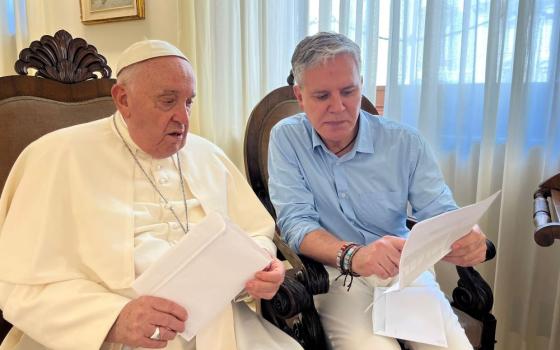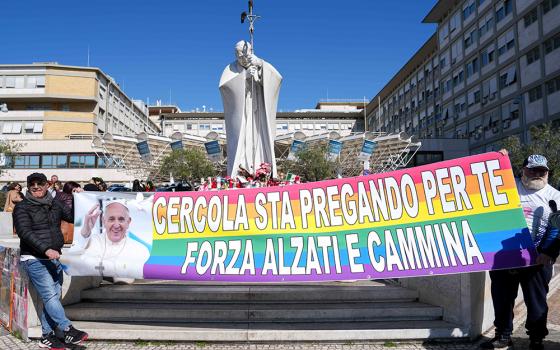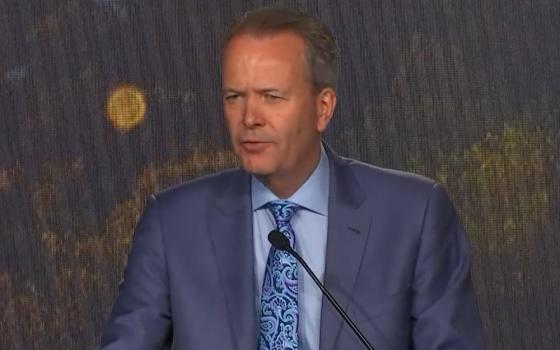
Secretary of State of the Holy See Cardinal Pietro Parolin addresses the 79th United Nations General Assembly at U.N. headquarters in New York Sept. 28, 2024. (OSV News/Eduardo Munoz, via Reuters)
Individuals and corporations have a moral obligation to pay their fair share of taxes, and wealthy nations have an obligation to use that money to help their poorer citizens and provide aid to developing nations, the Vatican secretary of state said.
The "overarching objective" of tax collection and government spending "should be to cultivate a public finance framework that is not only effective but also serves as a catalyst for solidarity and development," Cardinal Pietro Parolin told participants in a workshop sponsored by the Pontifical Academy of Social Sciences Feb. 13.
The workshop, "Tax Justice and Solidarity," looked at how tax policies, tax evasion and government spending impact economic inequality and the ability of nations to fulfill their obligations to their own citizens and to the global community.
"It is not sufficient to be vigilant in the fight against corruption," Parolin told participants. "There is also a moral obligation to assist those most in need and to provide education and health care. Furthermore, wealthy nations are obligated to provide aid to developing nations."
The academy's note for the workshop said, "Tax avoidance by multinational corporations is one of the most toxic aspects of globalization. Corporations that make billions of dollars of profits whilst benefiting from the investments in knowledge, technology, and infrastructure financed by public sectors, have been the major winners of globalization."
"By shifting a large part of their profits to tax havens, they deprive public sectors of the critical resources needed for investment in fundamental human rights such as health and education, and in policies to combat poverty and climate change," the note said.
And the world's wealthiest individuals, it said, "have the ability to lower their taxes by exploiting international tax competition and tax avoidance opportunities."
Advertisement
"Research conducted by numerous scholars and summarized in the Global Tax Evasion Report 2024 shows that when all taxes are considered as a whole — personal income taxes, consumption taxes, corporate taxes, etc. — the wealthiest individuals pay proportionately far less in taxes than other socio-economic groups," the academy said.
The New Testament and Catholic social teaching emphasize the responsibility to pay one's taxes. St. Paul's Letter to the Romans 13:7 says, "Pay to all their dues, taxes to whom taxes are due, toll to whom toll is due, respect to whom respect is due, honor to whom honor is due."
Parolin told workshop participants that tax collection and public spending have a "pivotal role" to play in the economic well-being of societies.
"A judiciously designed public finance system characterized by fairness, efficiency and effectiveness has the potential to exert a transformative influence on the economic landscape," he said. But "the current model fuels inequalities, both between and within countries."
For the Catholic Church, as explained by Pope Francis, a just tax system is characterized by "legality, impartiality and transparency," he said.
"Taxation should promote the redistribution of wealth and protect the economically disadvantaged," the cardinal said. When done fairly, it promotes the common good by ensuring the poorest at least have their basic needs met, he said, including their needs for education and health care.







